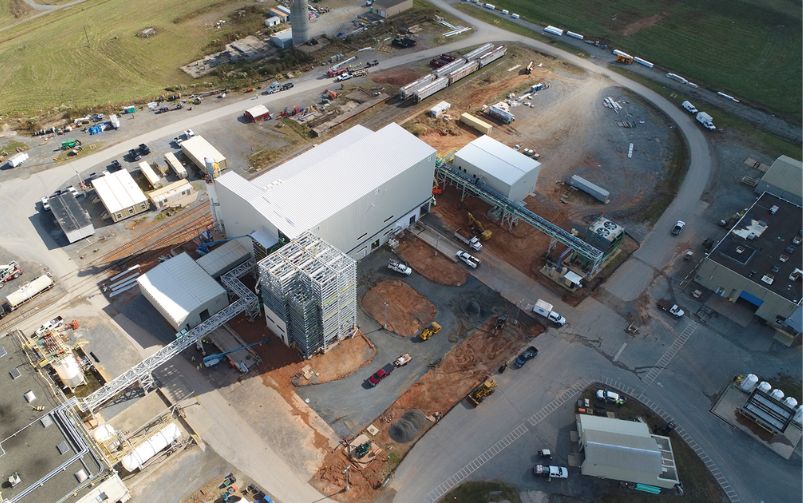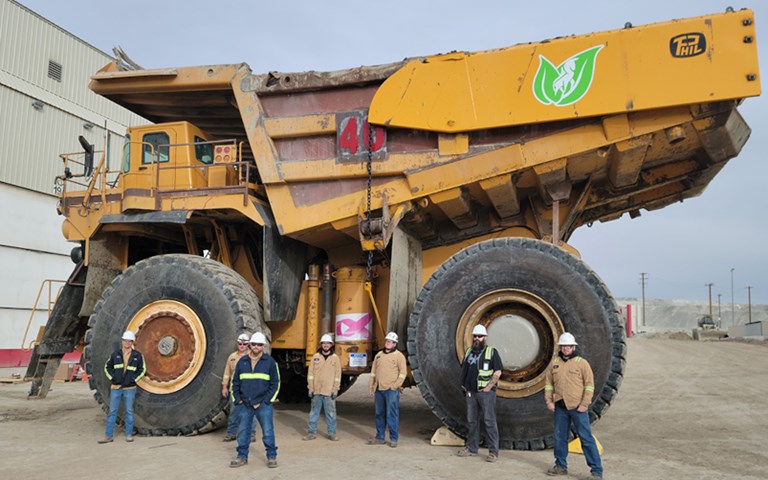Rio Tinto estimates that a full transition to renewable diesel will reduce its CO2 emissions by 45,000 tonnes per year. Courtesy of Rio Tinto.
Rio Tinto has successfully completed a renewable diesel trial at its open-pit borax mine in Boron, California.
The objective is to determine the suitability of renewable diesel for haulage at open-pit operations. This is part of Rio Tinto’s plans to move away from using conventional diesel in haul trucks at its U.S. operations and replacing it with renewable fuel, with the aim of reducing the carbon footprint of its fleet.
The trial was conducted in partnership with Neste and Rolls-Royce in 2022. The trial used Neste MY Renewable Diesel in the haul trucks, which is a hydrotreated vegetable oil (HVO) made from renewable raw materials; for example, used cooking oil or animal fat from food industry waste. Rolls-Royce provided new fuel system components for the test, along with technical support to inspect the parts after the test was complete.
According to Rio Tinto, the trial delivered positive results, showing that a truck running on renewable diesel “delivered similar performance and reliability as trucks running on conventional diesel.”
Marc Schlichting, senior manager, mining North and Latin America at Rolls-Royce Power Systems, said: “The engine ran over 6,000 hours on HVO. A trial like this is important for us to demonstrate the reliability of our engines in the field, and not just on a test stand under ideal conditions.”
Rio Tinto's goal is to achieve a full transition of its heavy machinery fleet on-site to renewable diesel by next year, which it anticipates would remove about 12 per cent of the mine’s carbon emissions for the full year 2024, or up to 45,000 tonnes per year of CO2 equivalent.
Related: Large haul trucks are one of the main focuses for cutting carbon emissions at mines, but there is no one right answer for dealing with them
Rio Tinto U.S. Borax will continue working with the U.S. Environmental Protection Agency, the state of California and engine manufacturers to achieve this goal.
A second trial, which is taking place in collaboration with Cummins at Rio Tinto’s Kennecott copper operations in Utah, was launched in October 2022 with a planned duration of seven months. This trial is testing renewable diesel in a different operational environment to the first trial and on different mining equipment; it will look at the acceleration, speed, cycle times, fuel usage and engine inspection reports of two trucks running on renewable diesel, then compare the results to two trucks running on conventional diesel.
Rio Tinto stated that the two trials support its global decarbonization objectives. This includes the reduction of its scope 1 and 2 emissions by 50 per cent by 2030; the company estimates that 13 per cent of its scope 1 and 2 emissions are carbon emissions from its diesel-run mobile fleet and rail. The company also has a pledge to achieve net-zero emissions by 2050.




